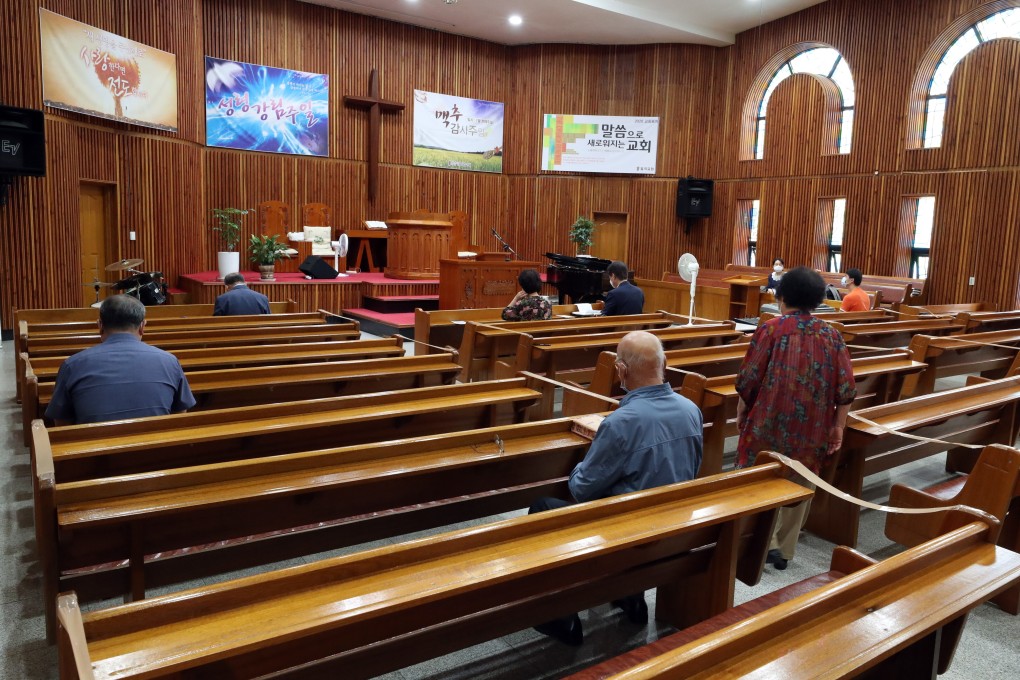Coronavirus: South Korea hit with resurgence of church-linked infection clusters
- The country recorded a daily tally of 50-plus cases for the first time in more than two weeks on Wednesday, 35 of which were locally transmitted
- Many of the clusters have been traced back to small churches in the capital region that have been struggling to implement antivirus measures

The additional 54 cases, including 35 locally transmitted infections, marked the first time since July 26 that the daily virus tally had risen so high – bringing the total national caseload to 14,714, according to the Korea Centres for Disease Control and Prevention.
Kim Kang-lip, vice-minister for health, told a press briefing on Wednesday that infection clusters which recently began “with small churches in the Seoul metropolitan area” had spread “to large markets and shopping centres, raising concerns over possible mass infections down the road”.
Of the 35 local transmitted infections – the highest daily tally in 20 days – all but three were reported in Seoul and Gyeonggi Province, which encircles the capital. The remaining three occurred in the southeastern city of Busan.

All 19 imported cases had either been detected during screening on arrival or while they were undergoing their two-week quarantine.
The recent flare-up, which represents an 18-fold increase from a daily low of just three locally transmitted infections on August 3, has been linked to a number of clusters arising from small churches in the capital area.